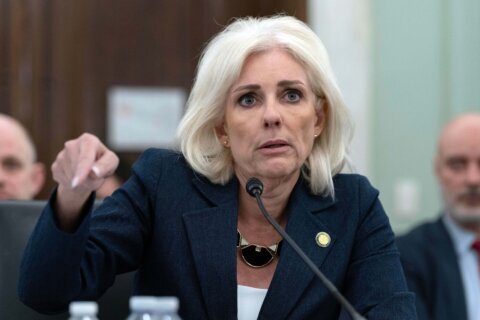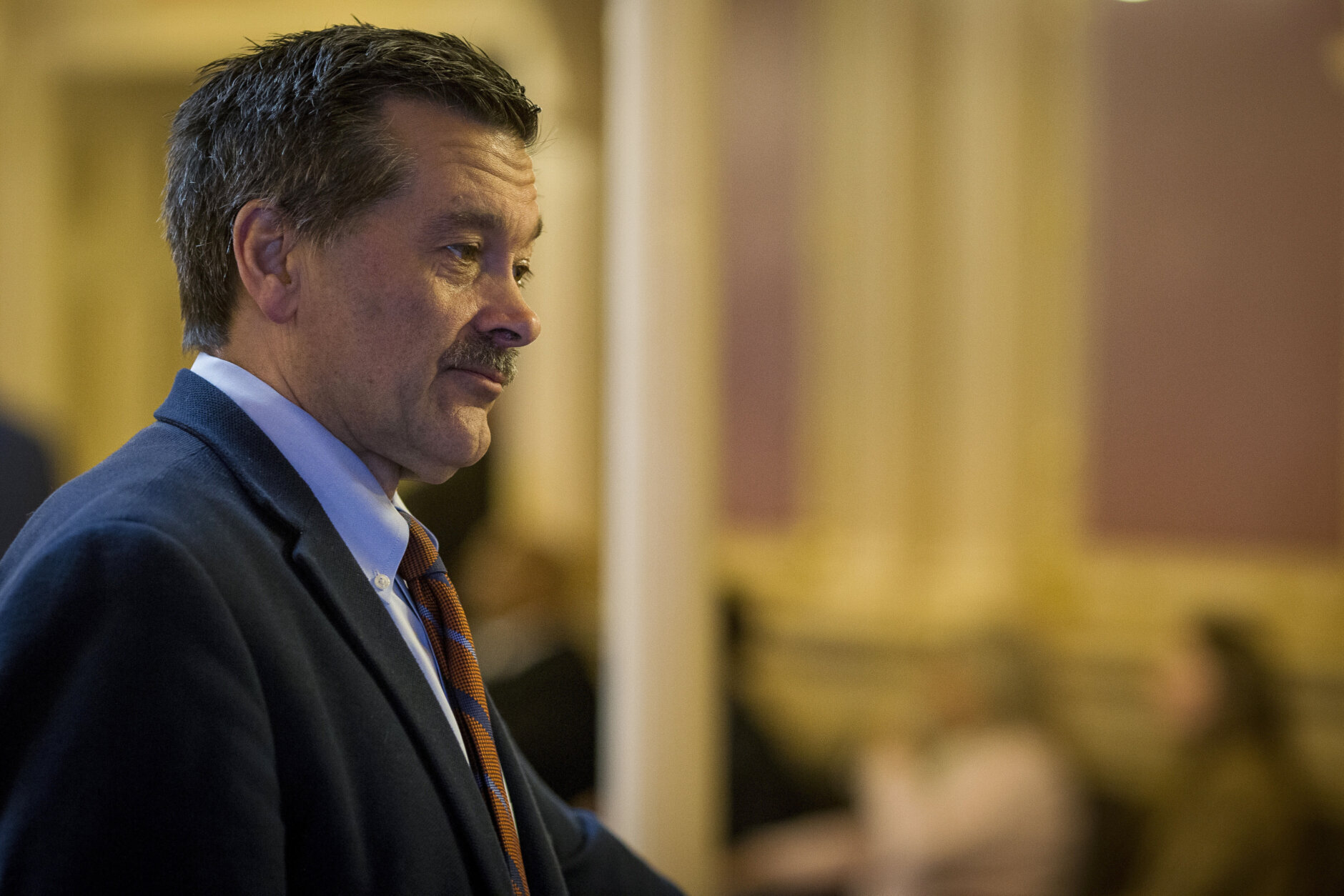
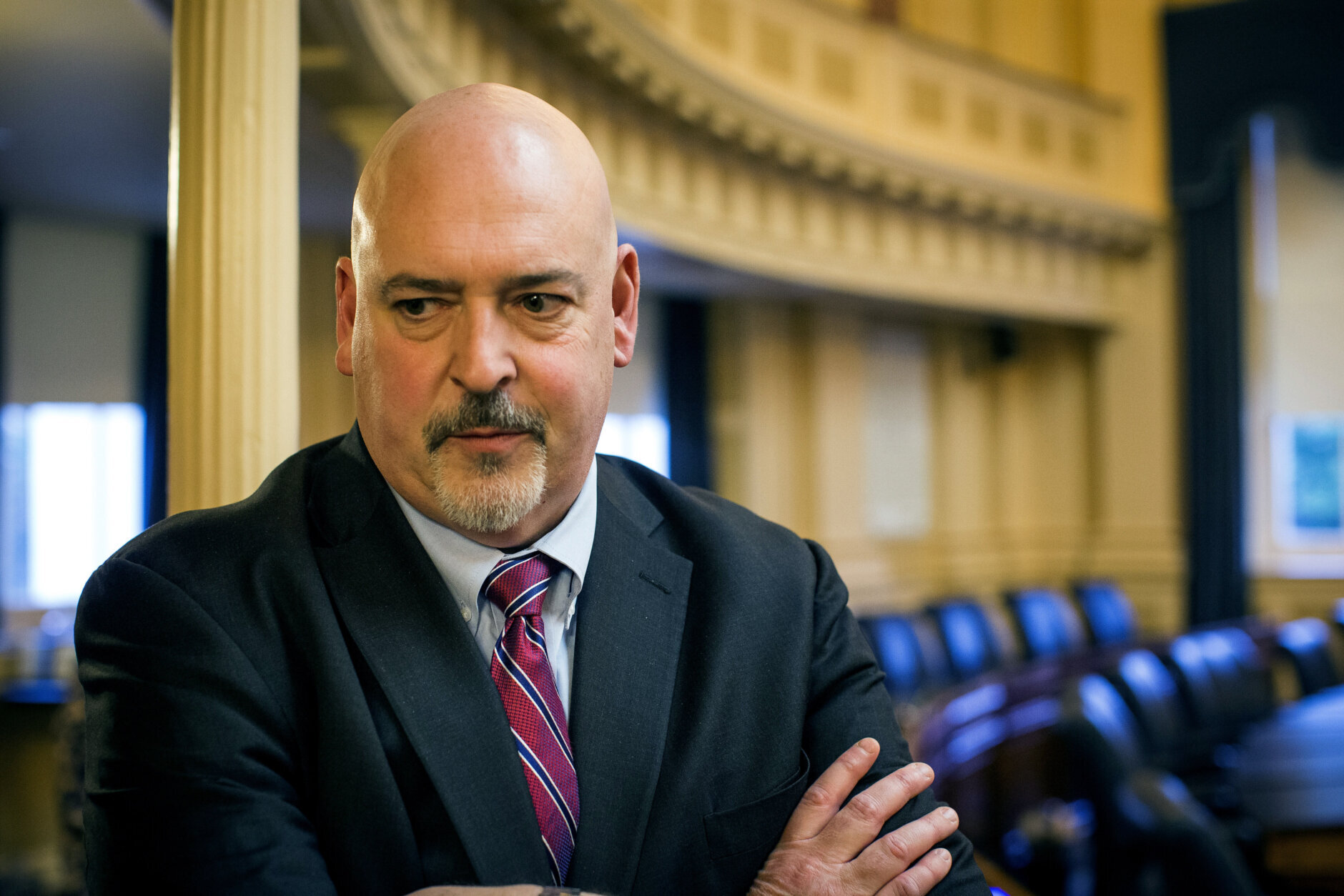
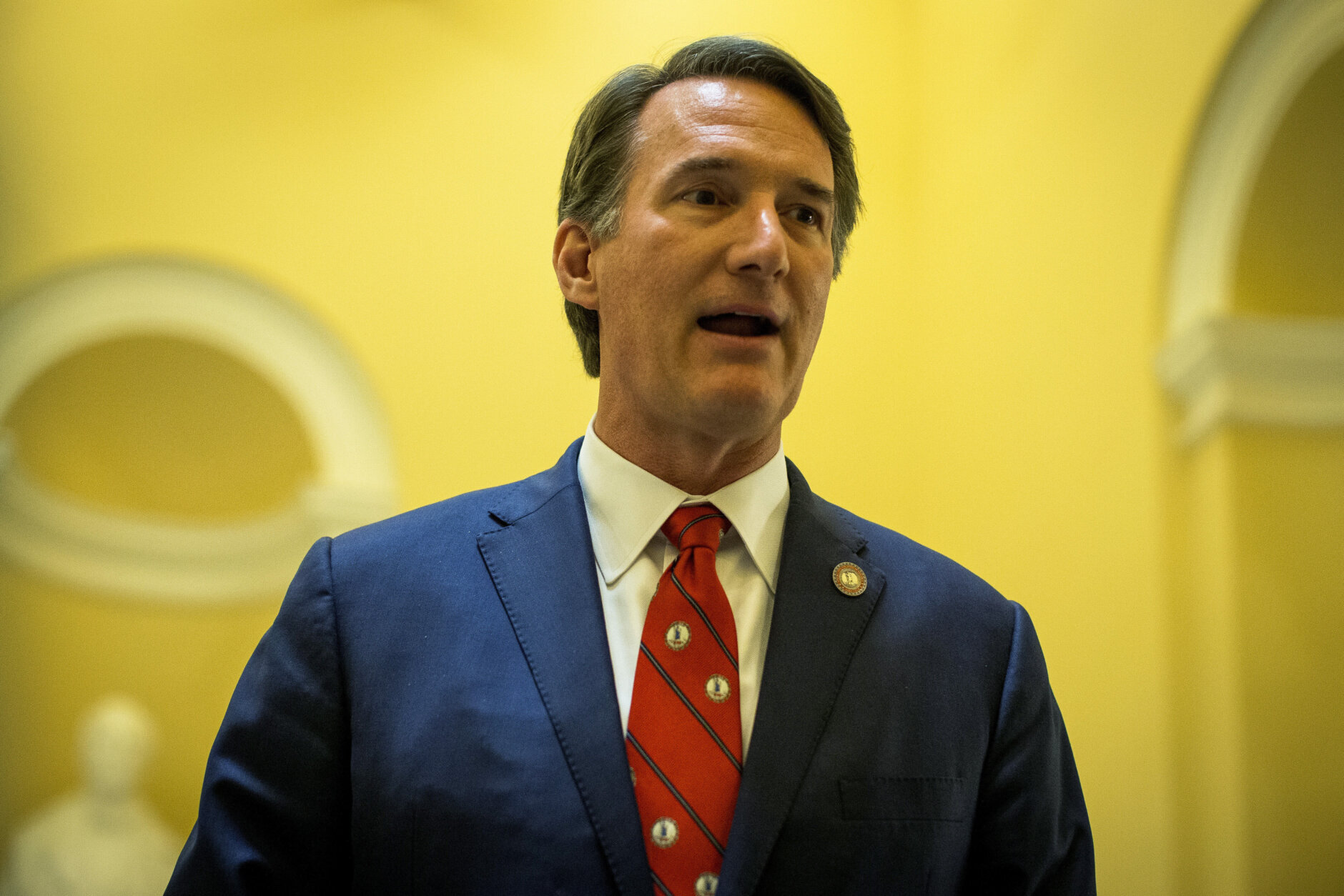
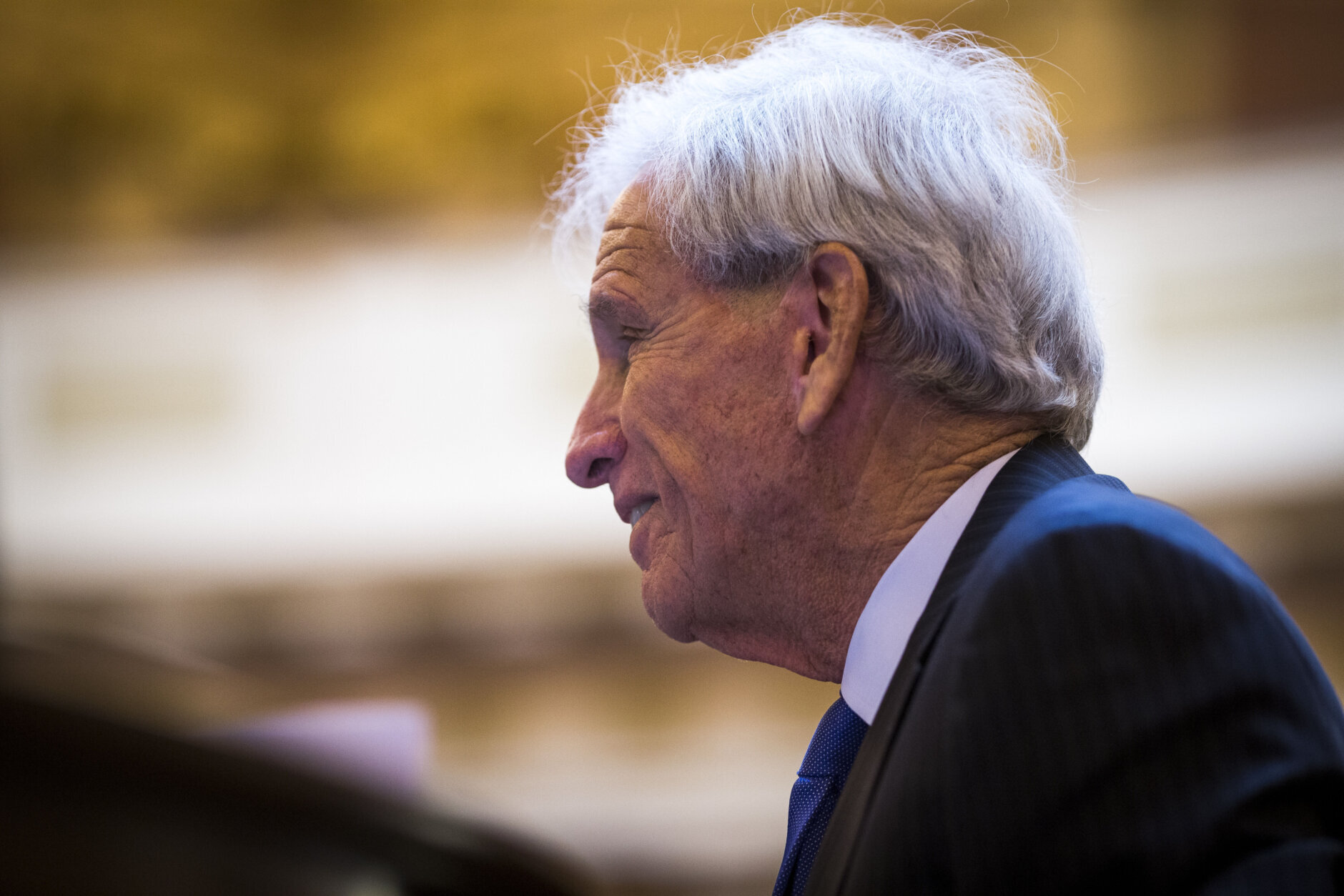
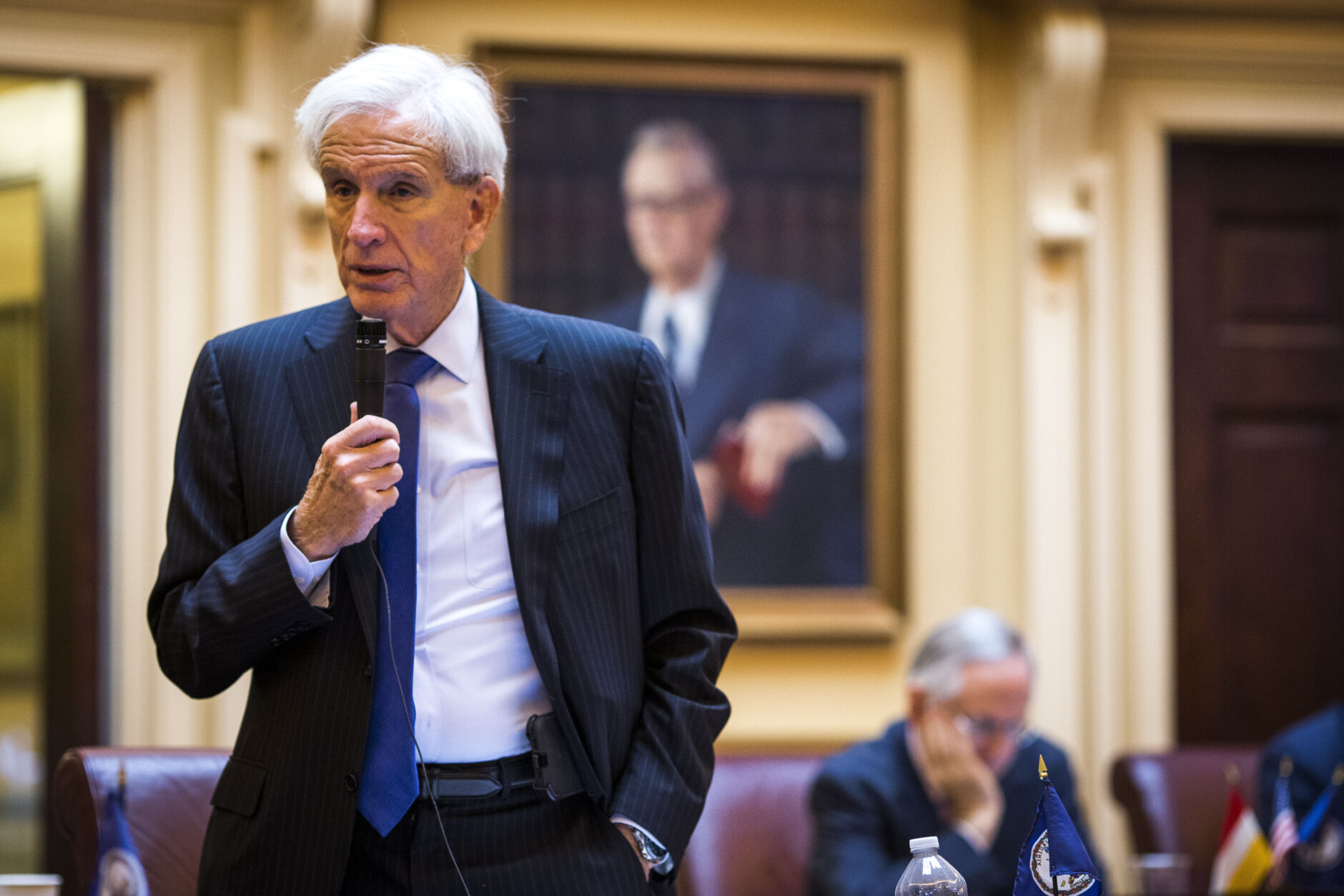

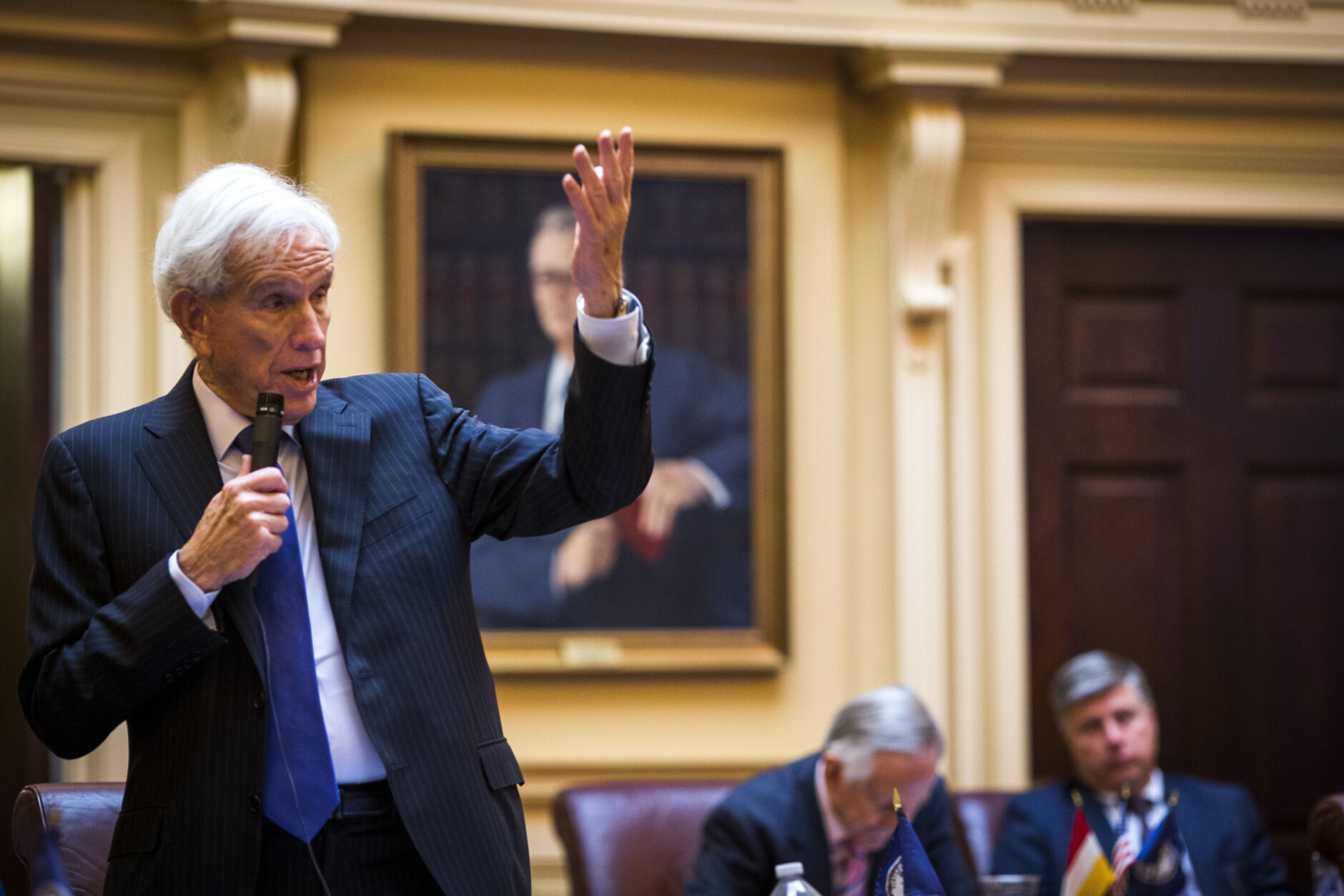

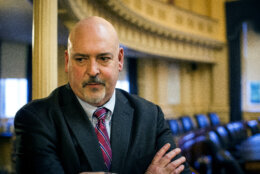
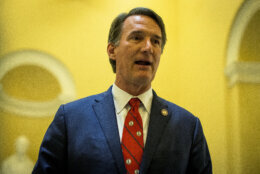

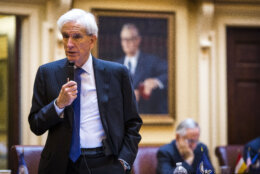

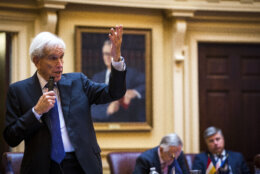
RICHMOND, Va. (AP) — The politically divided Virginia General Assembly worked through dozens of pieces of legislation, including a major energy bill and stop-gap budget bill, on Saturday as lawmakers reached the end of their regularly scheduled session without a deal on the entire state spending plan.
Unable to agree on several key pieces of the budget, including whether to enact the additional $1 billion in tax cuts Gov. Glenn Youngkin is seeking, lawmakers opted to pass a “skinny” spending bill and allow House and Senate negotiators to carry on with their broader discussions.
“We have come to an agreement on critical items that need to go forward now while we continue a dialogue in the coming days and weeks,” Senate Finance and Appropriations co-chair Janet Howell said.
Saturday marked the end of the year’s regular 46-day calendar. The session, during an election year in which every seat will be on the ballot, has been marked by impassioned floor speeches and partisan debates over issues like guns and abortion. Much of this year’s legislation cleared one chamber only to be killed in the other.
But lawmakers have found bipartisan consensus on a range of other issues, including the last-minute passage of the compromise energy bill, which would adjust the way state regulators set and oversee Dominion Energy Virginia’s electric rates and profitability in a way ratepayer advocates say is favorable for customers and marks a sea change in energy policy.
The legislation passed with near-unanimous support, with only one member voting against sending it to Youngkin. It was a product of long-running negotiations that involved the governor’s office and went down to the wire after the House and Senate advanced their own, differing bills earlier this month.
The way rates are set for Dominion, the state’s largest electric utility, as well as the authority the State Corporation Commission has to adjust them, has been a perennial issue at the General Assembly. In recent years, the company has pushed through legislation that minimized the chances that it would have to lower its rates. That is despite regulators having routinely found that the utility’s rates provide excessive profit.
“Our utilities have been regulated in our General Assembly and not in the SCC,” Youngkin told reporters in the Capitol, saying he was “particularly pleased” to see the legislation pass.
The measure includes several provisions that strengthen SCC oversight of the politically powerful monopoly utility, including increasing the frequency with which its base rates are reviewed and adding discretion to adjust them. It also effectively increases Dominion’s return on equity for a rate case that will take place this year, but by a figure that is smaller than what Dominion initially sought.
Dominion has said it needs a higher return on equity to help keep the company competitive as it seeks to raise money for a multibillion-dollar slate of renewable energy projects it has committed to building, including its massive offshore wind farm.
The legislation would roll $350 million worth of charges in what are called rate adjustment clauses, or riders, into base rates. The company has said doing so will lower the average customer’s bill by about $6 to $7 a month. It also allows the company to seek to spread out upcoming fuel costs over 10 years.
The legislation “represents a monumental shift in Virginia’s approach to electric utility regulation,” Dana Wiggins of the Virginia Ratepayer Protection Alliance said in a statement. “Governor Youngkin’s administration, in concert with a bipartisan effort led by the House majority leadership and long-time ratepayer advocate-legislators, stood up for ratepayers who for years have been overlooked and tossed over in favor of monopoly electric utilities.”
Dominion spokesman Aaron Ruby said in a statement that the bill was a “win for consumers and regulatory oversight” that would lead to lower bills.
In other action Saturday, lawmakers approved legislation aimed at making the actions of the state Parole Board more transparent to the public. The legislation removes provisions that exempted the board’s records from mandatory disclosure under the Virginia Freedom of Information Act. It also requires board members to provide written reasons for granting or denying parole.
The legislation comes in response to years of controversy over the practices of the parole board, particularly at the beginning of the coronavirus pandemic.
Both chambers also approved legislation aimed at limiting the use of solitary confinement in the state’s prisons.
Lawmakers signed off on a suite of incentives in connection with a previously announced deal under which Amazon has committed to invest $35 billion in new data centers in Virginia.
They failed, however, to reach a deal on filling two vacancies on the three-member SCC, the entity that regulates not only Dominion but a wide range of other important utility and business interests.
Democrat Sen. Scott Surovell said House Republicans had “ceased negotiations.” House Speaker Todd Gilbert said Democrats were insistent on one candidate who was a nonstarter, as she had previously been removed from the job by House Republicans.
In dealing with the budget, legislative leaders said the “skinny” bill sent to the governor contained deposits for the rainy-day fund and unfunded state retirement system liabilities, and capital outlays for existing projects. It also allocated money to make local school systems whole after an error in a state-provided formula that led them to expect more state aid than they were set to receive.
Youngkin expressed frustration that lawmakers failed to reach agreement, especially given the state’s flush finances.
“Of course I’m disappointed because I don’t think it’s that hard, really. We have plenty of money in the system. And it’s not an ‘or’ moment because we can fund a lot of very important things and cut taxes,” said Youngkin, who added he would call a special session once negotiators have a deal.
The close of the session has been marked by a flurry of retirement announcements, which continued on Saturday. At least some have been driven by the fact that lawmakers will be seeking new terms for the first time this year under maps that were overhauled during the 2021 redistricting process.
Long-serving Republican Del. Rob Bell, a former prosecutor who used his perch on the House Courts of Justice Committee to emphasize the perspective of crime victims, received a bipartisan standing ovation as he announced his retirement Saturday. So did Democratic Del. Dawn Adams, who is running for an open state Senate seat.
“We are losing some good people. And these last couple days have been hard,” said Democratic Del. Luke Torian, who was moved to tears as he spoke in acknowledgment of departing colleagues.
Copyright © 2026 The Associated Press. All rights reserved. This material may not be published, broadcast, written or redistributed.



